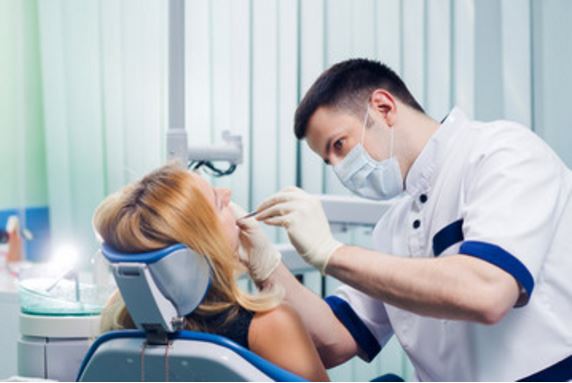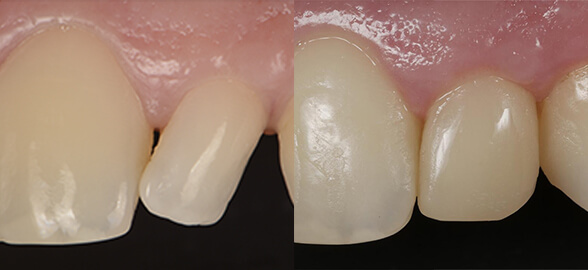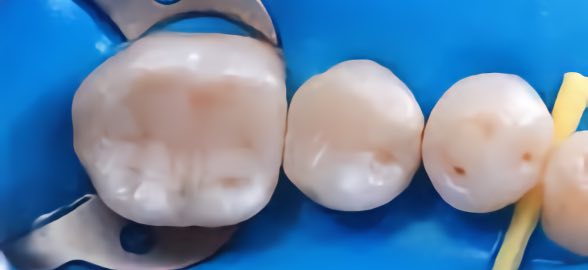Thanks to the ergonomic progress made over the years, dental professionals have been able to modify and optimize their working environment. Improving the capacity, instrumentation, magnification, lighting and use of gloves has provided a means of ensuring the right balance between the work and the capabilities of each dentist. In this article, we will show the most general aspects to take into account.
Dental Stool
One of the most important aspects for dental specialists is the stool. Finding the right seat is a complex subject on which there is a lot of misunderstanding. Studies indicate that dentists who sit 80 to 100% of the day are at increased risk of developing back problems. Prolonged sitting in a poorly designed chair with inadequate or poorly adjusted lumbar support is a contributing factor to muscle fatigue and back pain. The dentist continually adjusts his position to improve visual access and adapt to the movements of each patient. It must have a rigid base, not too wide (25% wider than the buttocks of the specialist) and adjustable in height. When the feet are aligned, the angle between the spine and the thighs should be 90 to 110 degrees. An angle less than 90º flattens the lumbar curvature of the spine and an angle greater than 110º gives the feeling of slipping out of the seat. Therefore, when choosing a dental stool, it must be ensured that it functions in a natural body position.
Discover the dental stools that are favorites for their comfort and ergonomics:
Armchair for the patient
When the patient is placed in a dental armchair, optimal results are obtained when the oral cavity is placed at a height equal to the height of the dentist's heart when the patient is lying down. Positioning the oral cavity above the level of the heart will limit vision and increase shoulder fatigue. On the other hand, placement of the oral cavity below the recommended height will result in unnatural work postures, including greater head tilt, front and/or lateral torso flexion.
Dental instruments
The design or location of the instruments can play a key role in preventing the future negative effects on the musculoskeletal health of the specialist who is often responsible for choosing and maintaining his own instruments and equipment. Although instrument design has come a long way since its creation, dental professionals often choose instruments based on knowledge rather than actual quality or specific properties. The purpose of the choice of the appropriate instrument should be to reduce the effort of use and to facilitate the use.
Field of view
When they want to see the operative field clearly, some specialists may be tempted to compromise their working posture by getting closer to the patient. Through the use of different enlargement systems, such as surgical loupes, dental professionals are able to increase their working distance and adopt a more upright body posture. As a result, magnification can play an important role in reducing uncomfortable work postures, particularly in flexing the neck forward. Today, there are different types of binocular loupes available on the market that meet the need for each treatment.

Lighting
Proper positioning of the light is a very important factor affecting the dentist's posture during the treatment. The goal of good lighting is to free the work from the shadows and focus attention on the field of action. This not only increases visibility, but also reduces uncomfortable work postures. For optimum illumination, the light line should be as close as possible to the line of sight. In general, a single light source can provide sufficient vision to treat a patient lying supine. For maxillary and jaw treatment, the light source should be directly above and slightly behind the patient's oral cavity. Once the patient has been correctly positioned, the light should be placed over the doctor's head to allow for good reach.
Gloves
Gloves should be worn routinely because of sanitary precautions. Gloves must be of adequate size, light and flexible. Tight gloves can cause pain in the hands, especially at the base of the thumb. This is often due to tissue pressure when the gloves are too small or too loose: when they are not worn properly for long periods, the gloves can compress the back of the hand, tighten the muscles at the base of the thumb and reduce blood circulation in the hand.
An additional factor in choosing the right gloves is the material. Even though latex gloves sometimes have some problems, such as sensitivity or allergies in some doctors and patients, there are alternatives with other materials, such as vinyl, nitrile, and polyisoprene, although they may be a bad fit. A newer and more recent alternative has been the use of chloroprene gloves that offer very high puncture resistance and have been found to be more flexible than vinyl.
If you want to know more about ergonomics in dental clinics, do not hesitate to read the next article!





